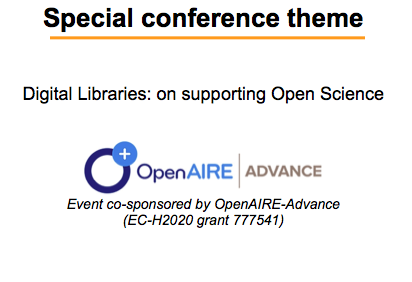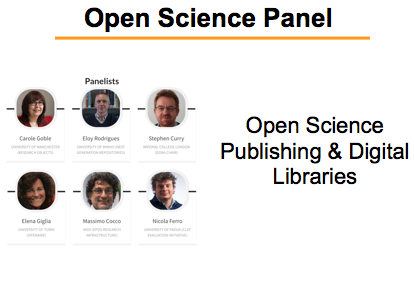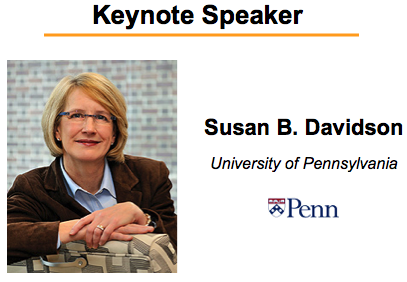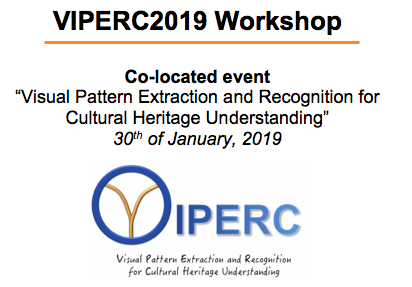Call for Papers
communication computing content data datasets deposition digital domain evolution experiments interlinking libraries open practices process products publications publishing re-use reproducibility research results reward scholarly science scientific semantics software users web
created at TagCrowd.com
Representatives from academia, government, industry, research communities, research infrastructures, and others are invited to participate in this annual conference. The conference draws from a broad and multidisciplinary array of research areas including computer science, information science, librarianship, archival science and practice, museum studies and practice, technology, social sciences, cultural heritage and humanities, and scientific communities. IRCDL welcomes submissions relative to theory, architectures, data models, tools, services, infrastructures about the following topics (but not limited to):
- Research impact: biblio-metrics and alt-metrics, indicators, impact factors, citation indexes, research dynamics, etc. relative to scientific literature, datasets, software, and other products
- Citation, provenance and curation of scientific datasets;
- Cross-discipline and cross-institution metadata and content integration
- Metadata definition, management, and curation: harmonization, de-duplication, etc.
- Interlinking of research products
- Educational practices: teaching, learning, reading (focused reading, strategic reading)
- Long-term preservation of research products, such as research data, software, multimedia, etc.
- Multi-media challenges (e.g. galleries, museums, libraries, archives, etc.)
- Novel Scientific Document Models, e.g. Enhanced Publications, Network-centric Publication Models
- Publishing workflows: novel peer review practices (e.g. research flow peer review, research data peer review, open peer review), research community-specific publishing workflows (datasets, software, semantic links)
- Open Science models, practices, mandates, policies: definition and validation
- Quality and evaluation of digital libraries
- Scholarly Communication services: recommendations, annotations, brokering, reproducibility of science, etc.
- Social networking and networked information
- Text/content analysis and mining for enhanced discovery, interpretation, and interlinking of research products
- User interfaces: access personalization, human computer interaction, advanced visualization, collaborative and adaptive environments, Virtual Research Environments
- Web solutions, e.g. semantic web, ontologies, Linked Data, Semantic Publishing




